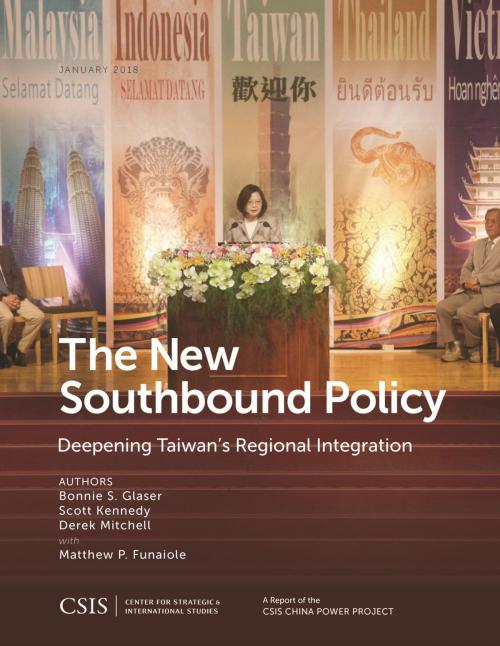The New Southbound Policy
Deepening Taiwan’s Regional Integration
Nonfiction, Social & Cultural Studies, Political Science, International, International Security| Author: | Bonnie S. Glaser, Scott Kennedy, Derek Mitchell | ISBN: | 9781442280540 |
| Publisher: | Center for Strategic & International Studies | Publication: | January 30, 2018 |
| Imprint: | Center for Strategic & International Studies | Language: | English |
| Author: | Bonnie S. Glaser, Scott Kennedy, Derek Mitchell |
| ISBN: | 9781442280540 |
| Publisher: | Center for Strategic & International Studies |
| Publication: | January 30, 2018 |
| Imprint: | Center for Strategic & International Studies |
| Language: | English |
In a concerted effort to expand Taiwan’s presence across the Indo-Pacific, President Tsai Ing-wen has introduced the New Southbound Policy (NSP) to strengthen Taipei’s relationships with the 10 countries of the Association of Southeast Asian Nations (ASEAN), six states in South Asia (India, Pakistan, Bangladesh, Nepal, Sri Lanka, and Bhutan), Australia, and New Zealand. The policy is designed to leverage Taiwan’s cultural, educational, technological, agricultural, and economic assets to enhance Taiwan’s regional integration. This report tracks the ongoing implementation of the NSP and assesses what has been achieved since Tsai was elected in January 2016.
In a concerted effort to expand Taiwan’s presence across the Indo-Pacific, President Tsai Ing-wen has introduced the New Southbound Policy (NSP) to strengthen Taipei’s relationships with the 10 countries of the Association of Southeast Asian Nations (ASEAN), six states in South Asia (India, Pakistan, Bangladesh, Nepal, Sri Lanka, and Bhutan), Australia, and New Zealand. The policy is designed to leverage Taiwan’s cultural, educational, technological, agricultural, and economic assets to enhance Taiwan’s regional integration. This report tracks the ongoing implementation of the NSP and assesses what has been achieved since Tsai was elected in January 2016.















